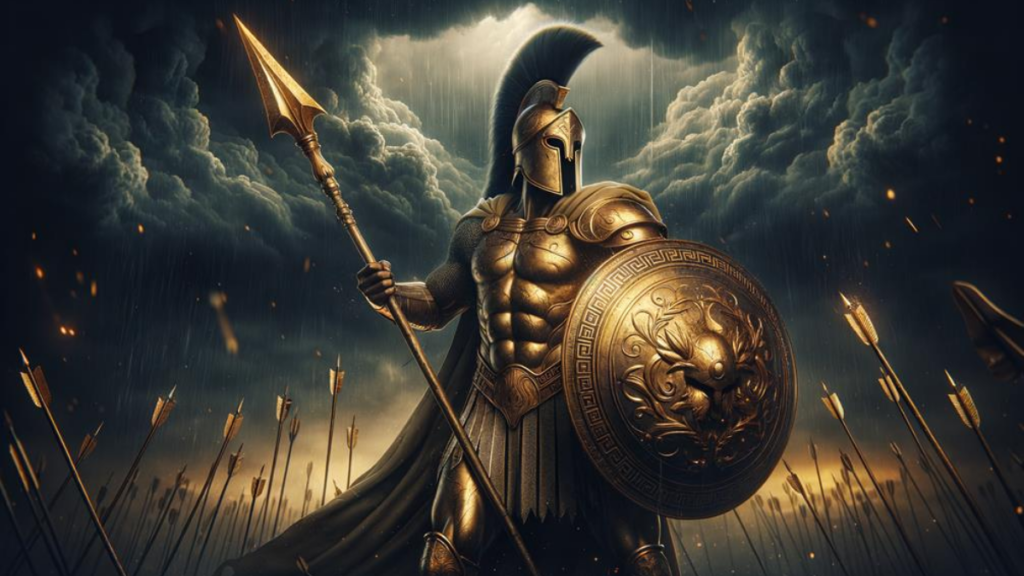In Greek mythology, Achilles stands as one of the most celebrated heroes, known for his unmatched bravery and prowess in battle. His name evokes images of strength, fearlessness, and near-invincibility. Yet, despite these traits, Achilles’ story is forever linked with the concept of vulnerability, symbolized by the phrase “Achilles’ heel.” This term has transcended its mythological roots, representing a critical weakness in even the strongest of individuals. Understanding the origins of Achilles’ heel not only offers insight into the myth itself but also explores the broader human condition of strength and frailty coexisting.
The Birth and Prophecy of Achilles
Achilles was the son of Peleus, a mortal king, and Thetis, a sea goddess. According to myth, shortly after his birth, Thetis sought to make Achilles immortal, attempting to protect him from the dangers of life. One of the most well-known versions of this myth describes how Thetis dipped the infant Achilles into the River Styx, whose waters were believed to confer invulnerability. However, in doing so, she held him by his heel, leaving that one spot untouched by the water. As a result, Achilles grew up to become nearly invincible—except for that small, unprotected area on his heel.
This small oversight would later become the cause of his undoing, giving rise to the term “Achilles’ heel,” which refers to a critical vulnerability in an otherwise strong person or system. The vulnerability of Achilles’ heel was not immediately apparent, but it would reveal itself in the final chapters of his life during the Trojan War.
Achilles in the Trojan War
Achilles’ role in the Trojan War, as depicted in Homer’s ‘Iliad’, showcases him as a warrior of unmatched ability. His feats on the battlefield were so extraordinary that the Greek army’s success seemed to depend on his participation. Yet, despite his invincibility in combat, Achilles was not without flaws. His arrogance, pride, and volatile emotions often clouded his judgment, leading to his withdrawal from battle after a dispute with Agamemnon, the leader of the Greek forces.
Achilles returned to the battlefield only after the death of his close companion, Patroclus, killed by Hector, the Trojan prince. Consumed by rage and grief, Achilles sought revenge, killing Hector and sealing his own fate in the process. His legendary strength and skill may have won him many battles, but the seeds of his downfall were already sown.
The Death of Achilles and the Symbolism of the Heel
The prophecy surrounding Achilles’ fate was clear—he would die young, but his name would live on forever. Despite his nearly invincible nature, it was this prophecy, combined with the vulnerability of his heel, that led to his demise. According to the myth, during the final stages of the Trojan War, Achilles was struck by an arrow shot by Paris, Hector’s brother. Guided by the god Apollo, the arrow hit Achilles directly in his heel—the one vulnerable part of his body—and led to his death.
This moment, where a single weak spot causes the fall of an otherwise unbeatable hero, gave rise to the modern metaphor of the “Achilles’ heel.” It represents the idea that no matter how powerful, strong, or invincible someone or something may appear, there is always a potential point of failure or vulnerability. Achilles’ death serves as a poignant reminder that no one, not even the greatest of heroes, is without their weaknesses.
The Broader Meaning of the Achilles’ Heel
In modern times, the term “Achilles’ heel” has taken on a life of its own, extending far beyond its mythological origins. It is used to describe a weakness in a person, organization, or system that can lead to their downfall despite their strengths. For example, a highly successful company may have an Achilles’ heel in its lack of innovation, or an elite athlete may have an Achilles’ heel in a particular aspect of their performance.
This metaphor has also permeated psychological and philosophical discussions, often highlighting the inherent human condition. Just as Achilles’ strength was inseparable from his vulnerability, human beings are similarly complex, with strengths and weaknesses intertwined. The concept of the Achilles’ heel speaks to the fragile balance between power and frailty, reminding us that no one is entirely immune to harm or failure.
Also Read: The Symbolism of the Trojan Horse in Art and Literature
The myth of Achilles and the origin of the term “Achilles’ heel” provide a profound lesson about the nature of strength and vulnerability. Achilles, the nearly invincible hero, was brought down by a single weak spot, illustrating how even the greatest of strengths can be undermined by hidden flaws. Today, the phrase serves as a powerful metaphor, reminding us that everyone and everything has a point of vulnerability, no matter how indomitable they may seem. Achilles’ story continues to resonate because it speaks to the universal truth that strength and weakness often coexist—and that recognizing this duality is essential to understanding the human experience.
–Silviya.Y
